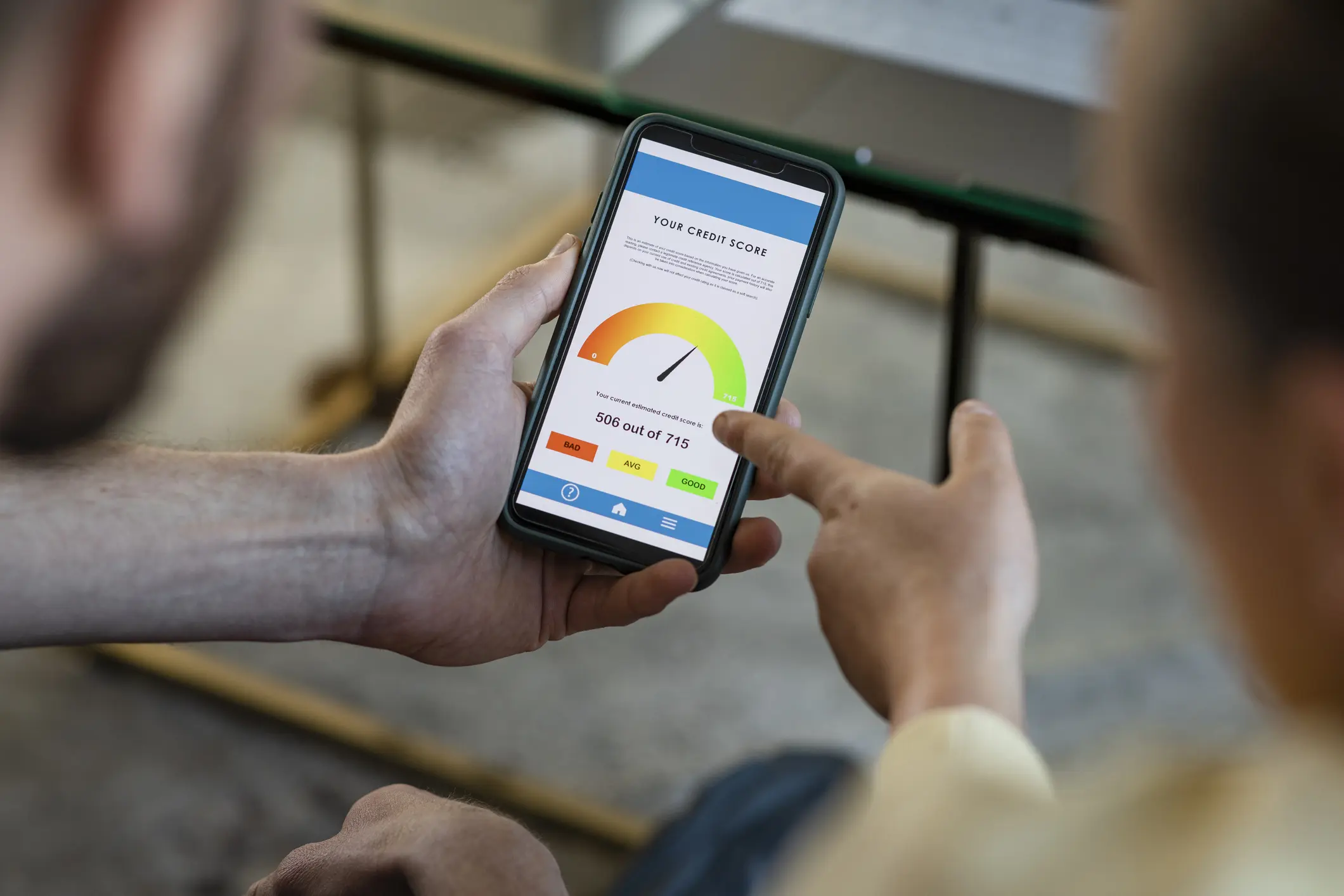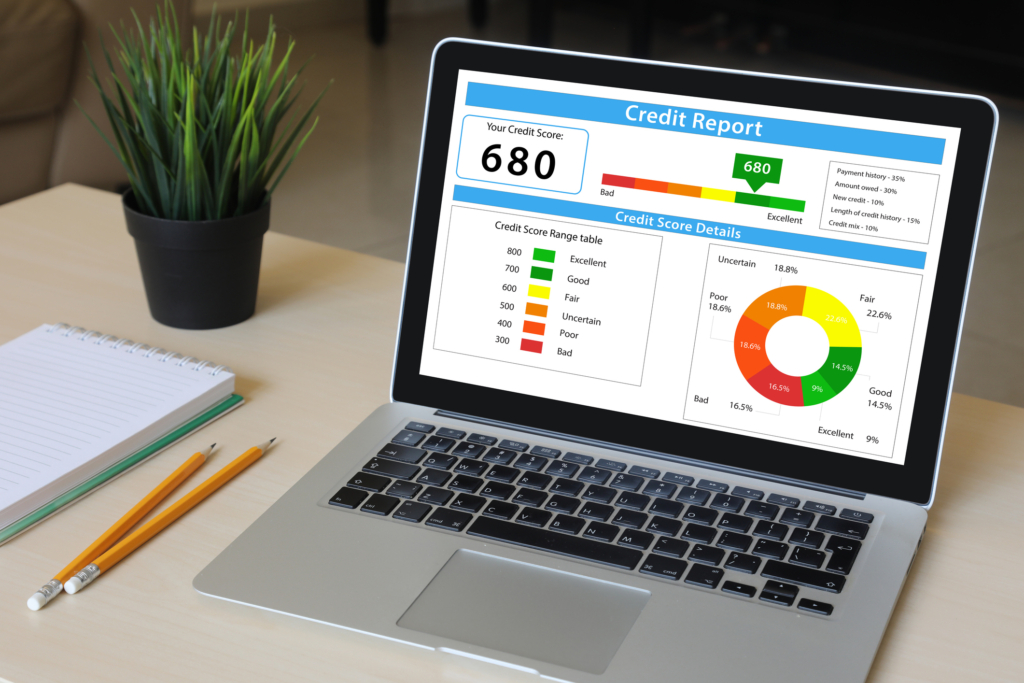
Your credit history is one of the most important aspects of your financial health.
But issues can arise, and unexpected financial hurdles can send your credit profile into a spiral. When you start fixing your credit, it can feel like your credit scores gets stuck below your target number. What gives?
Let’s explore how long it takes to rebuild your credit, plus go over some smart ways to get the process started ASAP.
Put simply, your credit history or profile is a complex indicator of “creditworthiness”: a measurement of your overall financial responsibility or your likelihood to pay back a loan you take out.
Note that there is no “one” credit score. There are many scores and scoring formulas available to you and lenders. These scores may be different depending on the source of your credit information, such as different credit bureaus. Many credit scores are generally recorded as three-digit numbers ranging between 300 and 850. Here’s a breakdown of the typical range of credit scores and what they mean:
The higher your credit score, the better. The lower your credit score, the harder it will be to convince a lender to offer you a loan with the most favorable rates and terms. For example, with a credit score of over 800, you’ll likely qualify for loans with lower interest rates and more favorable terms. In contrast, the lower your credit score goes, the less likely you’ll be able to secure the most favorable loan, mortgage, or credit card.
Some of the most common events in your credit history that can harm your credit score include:
Credit scores can go up and down based on how much available credit you have, the consistency of your payment history, whether you’re paying down your debt consistently or leaving large balances on open lines of credit, and how your debt stacks against your income.
Sometimes, even with careful monitoring and managing of your credit, life can deliver an unexpected expense or circumstance that may put you in a position to need to make tough financial choices that may cause your credit score to dip. From a job loss to unexpected medical bills to car accidents, anytime your finances are strained, and you cannot meet your monthly credit obligations or need to extend your credit use beyond what is comfortable, your credit score may be impacted.
But don’t worry, credit scores are dynamic measurements of your creditworthiness. And there are several ways you may be able to get your credit back on track after an upset.

The three major credit bureaus allow you to request a copy of your credit report once per year for free without incurring any credit score penalties. It’s always a good idea to keep track of your current credit report – that way, you can take immediate action if you find any negative items and you don’t recognize or so you can see how your credit improvement efforts are paying off.
From time to time, your credit score might decrease for no apparent reason. When you check your credit report, you might see an inaccurate or erroneous line item – say, a record of a missed bill that you know you already paid.
If and when this happens, you’re allowed to dispute that inaccurate information by:
You don’t have to let inaccurate personal information drag on your credit score. In fact, the rights given to you by the Consumer Financial Protection Bureau (CFPB) lay out plenty of legal tools you can use to fight erroneous information.
On a day-to-day basis, the best thing you can do to rebuild your credit over time is to make timely payments for all bills and debts under your name.
To make this even easier, take advantage of autopay features for any companies you work with, like your bank, credit union, utility company, etc. Autopay can be a lifesaver for folks with busy lives – it ensures that you pay your bills on time without having to remember each due date or make your payments to several companies.
When you’re in the midst of credit repair, take a pause on new loans and new credit cards until your financial situation is a little healthier. Each new loan you take out or line of credit you open could cause your credit to drop by a few points.

At the same time, if you have any open credit accounts, ask a credit repair specialist whether you should close those unused accounts or not.
Your credit score is partially calculated by looking at your credit utilization ratio, which is how much of your current total open credit you’re leveraging. If you close a big credit account, you could reduce how much open credit you have to spare and accidentally make your credit utilization ratio that much worse, which might impact your credit.
There’s no set timeline to fix your credit that everyone can follow. How long it takes to repair your credit depends on:
Credit reports are usually updated monthly. So, if your credit score goes down one month, the earliest it’ll increase is a month from then. More typically, it can take several months to increase your credit score after it experiences a big hit.
According to Experian, some negative credit information can remain on your credit report for several years. These include:
These negative items can make it harder for you to increase your credit score while you adjust your behavior and pay off your debts. Keep this in mind to avoid getting discouraged; even if it seems like your credit score isn’t increasing, each day can bring you closer to a healthy credit history.
While repairing or rebuilding your credit could take months or years, the best time to start is always right now. Pick a first step to take toward building your credit and get started today!
https://www.experian.com/blogs/ask-experian/how-long-does-it-take-to-rebuild-credit/
https://www.consumerfinance.gov/ask-cfpb/how-do-i-dispute-an-error-on-my-credit-report-en-314/
The information and materials provided on this website are intended for informational purposes only and are not specific legal or financial advice for your situation They should not be treated as an offer or solicitation of credit or any other product or service of Regional Finance or any other company, or a guarantee or warranty of any specific results. This website may contain links to websites controlled or offered by third parties. The inclusion of any third-party link does not imply any endorsement by Regional Finance of the linked third party, its website, or its product or services.
You can prequalify for your personal loan online in just minutes by clicking prequalify now. Or, if you prefer, call or stop by your local branch to get the process started. Our loan specialists can answer any questions you may have such as what a personal loan is, understanding personal loan interest rates, and how to qualify for a personal loan. We’ll help you fill out an application for the type of loan that fits your needs.